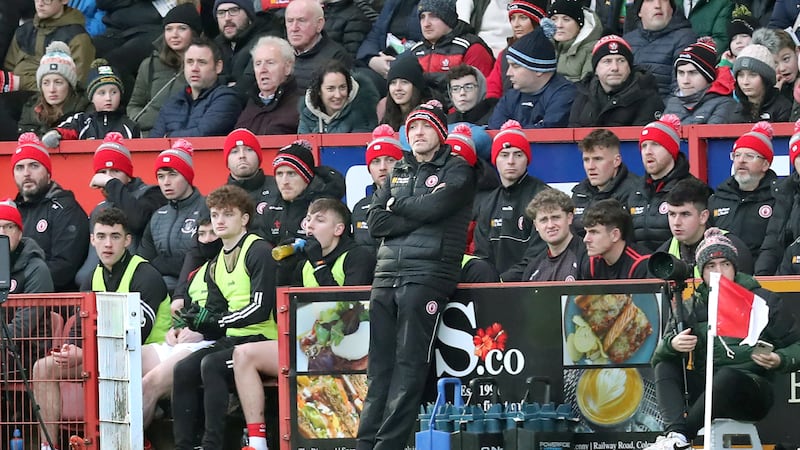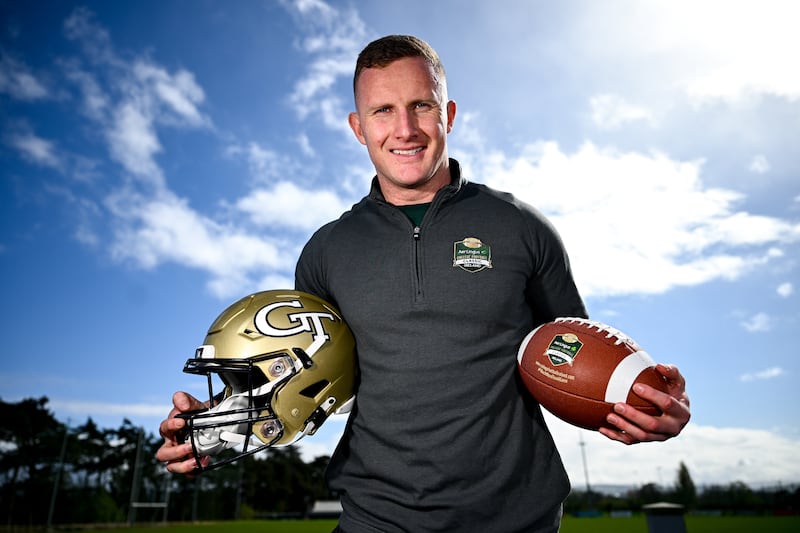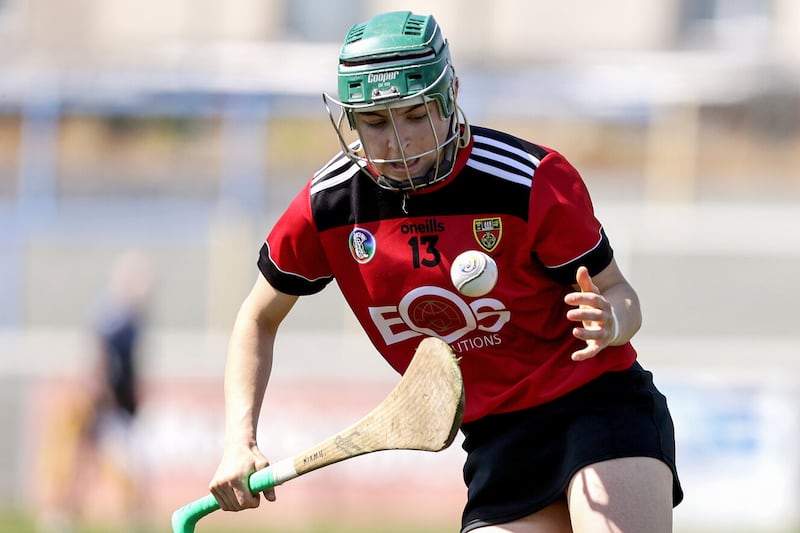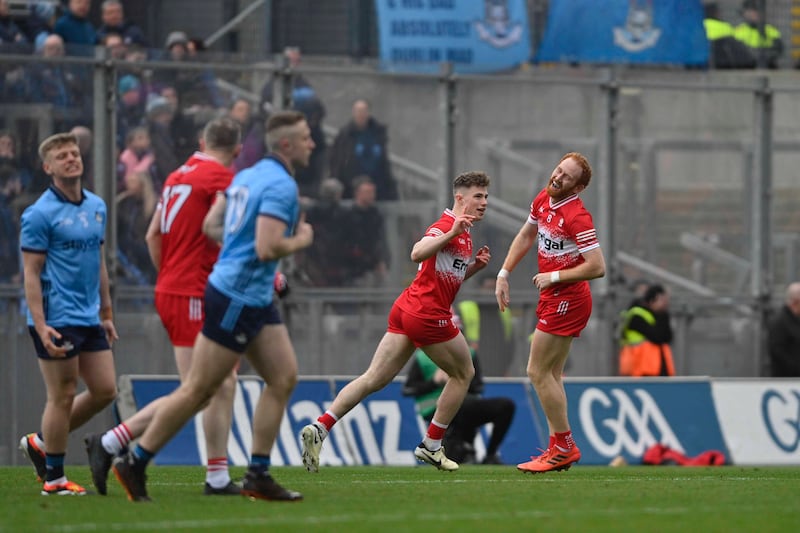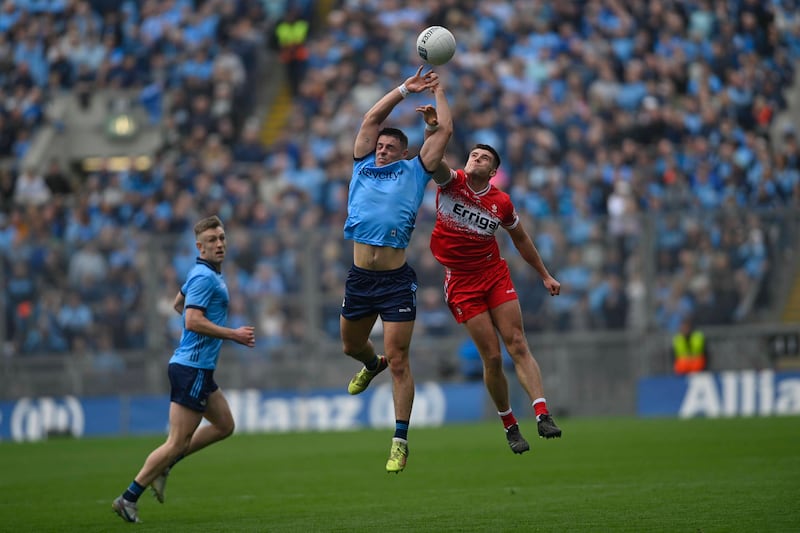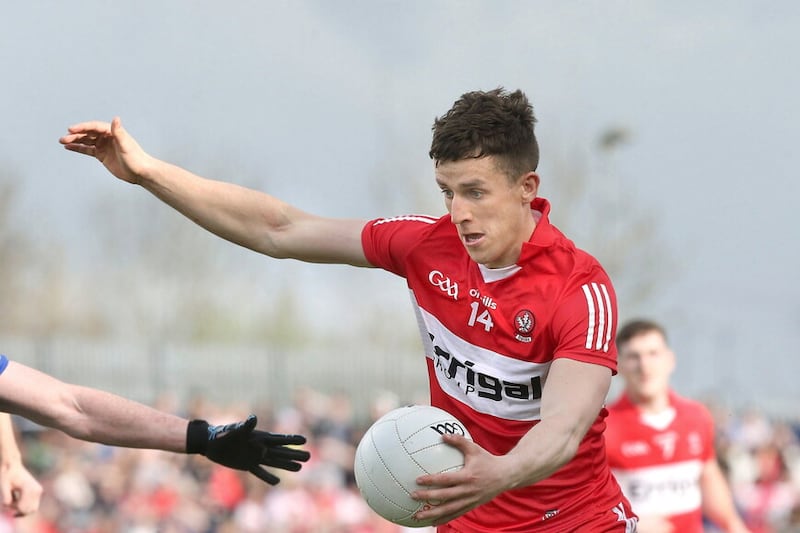Dublin, Game of My Life, with David Sheehan (Hero Books, 256pp)
THERE are All-Ireland Finals aplenty discussed by 25 Dublin footballing legends in the latest quality publication from Hero Books - but 1995 against Tyrone is one that will forever be talked about.
Meath man David Sheehan has expertly compiled another terrific collection of tales, from Jim Crowley's account of the 1958 All-Ireland SFC semi-final against Galway to Kevin Nolan starring as the Dubs ended their wait since 1995 in the 2011 decider, dramatically defeating Kerry.
There are greats along the way, including Paddy Cullen, Kieran Duff, John O'Leary, and Alan Brogan. Charlie Redmond is in there too…
Ah, Charlie.
The Tyrone blood begins to boil when Paul Curran, in his opening paragraph about the 1995 All-Ireland Final against the Red Hands, tells Sheehan 'We were an unfortunate team in many ways…'
However, the Thomas Davis clubman is very honest in admitting that 'I was just lucky that we got over the line eventually.'
Curran acknowledges that Tyrone were extremely hard done by when Sean McLaughlin's last-gasp levelling score was ruled out by referee Paddy Russell, saying 'there would have been no argument from any Dublin player if that had been allowed.'
Let Curran take you back…
"You remember the one that crowns it. We were an unfortunate team in many ways, so I was just lucky that we got over the line eventually. When you look at how things are now with all the success Dublin has had, we were the opposite – we were getting to finals and losing.
"When you look back at the 90s, eight different teams won All-Irelands in that decade, which is extraordinary. That will never happen again, ever. I think there were four different winners in the Noughties, but the 90s was just an incredible time in terms of the number of strong teams in the country. The competition was huge, and to even win a match in your province was hard enough, so to win a provincial medal and then try to go on and win an All-Ireland was very difficult.
"Looking at the 1995 campaign, we'd been through the wringer in the years before that… 1991 and losing the four-game saga against Meath; '92 and losing the All-Ireland final, unexpectedly in most people's eyes, to Donegal; '93 and losing a semi-final to Derry; '94 and losing the final to Down.
"There always seemed to be some drama along the way too. We missed penalties in 1992 and '94. But did we ever get to the stage where we started to think it would never happen for us? No, that was never something that came into our heads. It's probably something similar to the feeling the Mayo players have had in recent years. Once you're competing on the second-last or the last day of the season, then players always believe that they can get over the line.
"I remember coming back in January 1995 and we were just as determined as ever. We trained as hard as we did the year before – possibly harder – and even though we were getting a little bit older, we did have an injection of youth in the shape of Keith Galvin and Jason Sherlock. Brian Stynes had started in 1994 but he was still relatively new and was definitely a better player in '95.
"We just seemed to be more determined, more experienced, and maybe the little bit of luck that we didn't get in the previous years came our way in '95 on a couple of occasions. I won't say that the rest of the country was feeling sorry for us at that stage, but it did feel like they wouldn't be unhappy to see us winning an All-Ireland.
"I haven't watched the game back in a few years, but there would be certain parts of the game that will never leave me. We started poorly… Tyrone went three points to no score ahead. Ulster teams were going for five All-Irelands in-a-row at that stage, and I think a lot of people thought it was going to be Tyrone's time to win after Down twice, Donegal and Derry had their day.
"We couldn't have got off to a worse start, but Keith Barr's free-kick stands out to this day. I played half-back with Keith and that free-kick was just inside the 65-metre line. It was a massive kick and it had plenty of room going over the bar… that was a real settler for us.
"The next two scores we got were also dead balls from two different players. I'm not sure that has even happened before or since – that your first three scores in an All-Ireland final are three dead balls from three different players.
"We'd got ourselves back into it fairly quickly and for the rest of the half we took over. We dominated midfield and started to get well on top. Charlie's goal stands out too as it put a bit of daylight between the teams for the first time, and we went in with a five-point lead. It was a good first-half and we were confident coming back out, but we were a team that had taken plenty of hits and we were vulnerable, obviously.
"Tyrone started coming back and, in the end, we were lucky to get over the line. I think every Dublin player will admit to that. There was the disputed moment right at the death where Peter Canavan allegedly touched the ball on the ground.
"That would have been an equaliser and we would have had to come back another day. I wasn't too far away from that incident and all I can say is there would have been no argument from any Dublin player if that had been allowed. We would have had to dust ourselves down and get ready for a replay.
"I think that the advantage would have been with Tyrone if that had happened. They would have gathered a lot more belief that they could win what would have been their first-ever All-Ireland at that time. The overriding emotion when Paddy Russell blew the final whistle was relief.
"I was due to be marking Adrian Cush, but he got injured before the final so I was marking Ciarán Loughran. He was a tough little character and a strong runner. That Tyrone team in general actually, they wouldn't have been the biggest in stature, but they were a tough, physical bunch. I didn't have much to do for the first 15 minutes. The ball just didn't come my way.
"Like all defenders back then, my first job was to look after my man. It's totally different to football these days. If I was playing now, I wouldn't have to mark too many lads because they'd be back in their own back line. I got a few touches and was involved in a few scores. I started to get on top of Ciarán and he was replaced by Mattie McGleenan after half-an-hour. Stephen Lawn came out from the corner, and I picked him up until half-time, then he was taken off and Brian Gormley came in… and I was on him.
"I don't know if I'd say I saw off two different lads, but it was man-to-man, and it was very easy for a manager to see who was doing well. No 5 marked No 12, and if No 12 got a point, then it was obvious that it was his marker who was to blame. That's how I looked at it anyway.
"If my man kicked a point, I'd be getting worried. If he scored two, I'd be looking towards the line. If he scored three, I'd be walking myself before I was hauled off! That's the way it was, it was much easier to see who was playing well or badly. I find now that it's hard to keep track of where lads start, where they finish, who they're marking and so on. It was easier to hold someone accountable when it was straight man-to-man.
"The atmosphere in those games against the Ulster teams was different. To be fair, when we were playing Meath in those games in 1989 and into the 90s when Croke Park was jammed and both teams were good enough to go on to win an All-Ireland, the noise was incredible. But there was something different about the northern teams.
"There was an explosion of Ulster football from 1991 to '94 when they went on that run of winning All-Irelands, and it was like every person who was supporting those teams had a flag.
"The sea of opposition colours in the crowd in those games against Donegal, Derry, Down and Tyrone was just unreal. More so than our own supporters or the Meath supporters. Every fan from Ulster seemed to have a flag. They really seemed to have the attitude of… Let's make as much noise as possible, and let's make it visual.
"I remember for the parades in 1992, '94 and '95, it was very, very noisy. Especially that section in front of the Canal End. Extremely noisy. Extremely visual. But it was something that we got used to. Maybe it had an effect the first couple of times we saw it, but we had learned to block it out by the time 1995 came around.
"It was a one-point game, John [O'Leary] had the kick-out and I was thinking that if we win it, we're home and dry… but if they win the ball, then we're under pressure. They won it and came forward down the Hogan Stand side and Ciarán Corr played the ball in, probably going for a score. It fell short and John came out to clear the ball and anything else that was in his way.
"It fell to Canavan, and if it had come straight to him he would certainly have popped it over himself, but it went behind him and he had to re-adjust, lost his footing a bit and scooped it out to Seán McLaughlin. He popped it over, but Paddy Russell decided that Peter touched the ball on the ground.
"We were lucky, there's no doubt about. Someone was looking down on us at that moment – for once! Seán went running off thinking he'd scored the equaliser. I was very close to Peter when he played the ball, so I knew straightaway that the free had been given. Relief. That's the only word I can use. Keith Barr took the free and that was the last kick of the game. The fans went mad and started coming onto the field."

